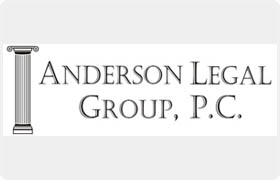Colleyville DUI-DWI Lawyer, Texas
Featured Law Firm
-
 x
x

Click For More Info:
-
Anderson Legal Group, P.C.
5209 Heritage Avenue Colleyville, TX 76034 » view mapCriminal Law Achieve your results & Reduce Your Stress
If you or a loved one has been charged with a crime, you need the assistance of Anderson Legal Group. Contact us so that we can inform you of your legal options.
800-931-7141  Andrew Anderson City, State
Andrew Anderson City, StateAttorney At Law - State, Year
Law School, J.D. - Year
 News
NewsClick here to learn more about our firm.
 Contact UsEmail or Call 24/7
Contact UsEmail or Call 24/7Call today for your initial consultation.
FREE CONSULTATION
CONTACTFREE CONSULTATION
CONTACTStephen David Handy
Juvenile Law, Domestic Violence & Neglect, , DUI-DWI, Criminal
Status: In Good Standing

 News
News Contact UsEmail or Call 24/7
Contact UsEmail or Call 24/7

